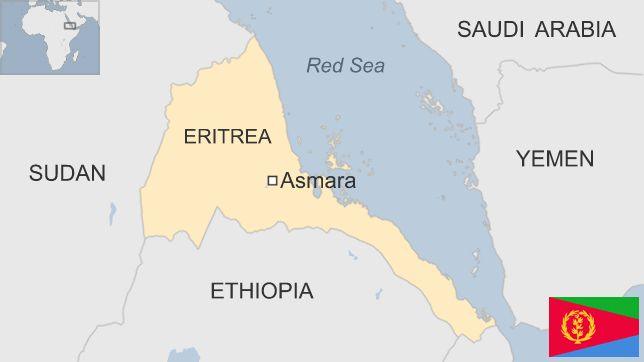What is behind tension between Eritrea and Djibouti?
- Published
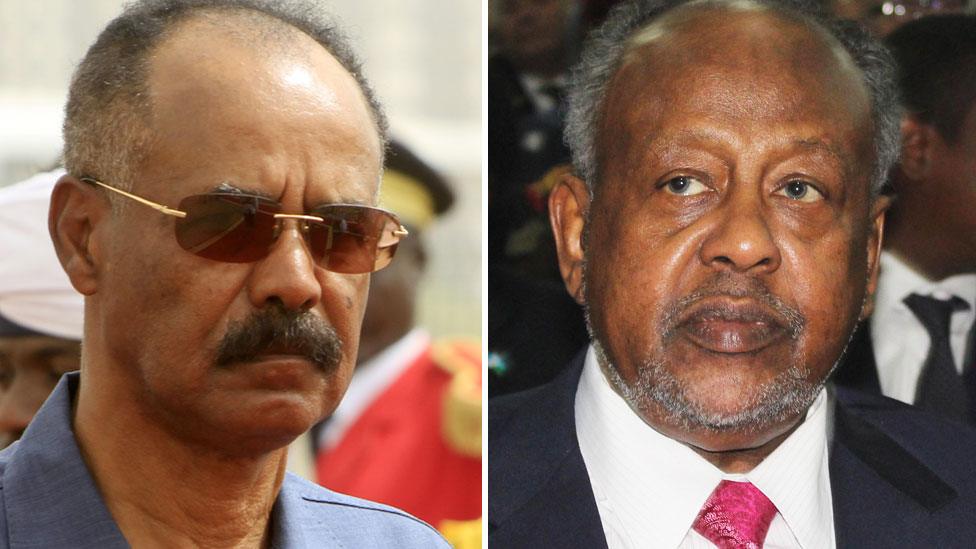
Eritrea's President Isaias Afewerki, left, and Djibouti's Ismail Omar Guelleh. How will their diplomatic spat develop?
The African Union is sending a fact-finding mission to Eritrea and Djibouti as tension mounts over their disputed border at one of the world's busiest shipping routes.
The AU's move has been backed by the UN Security Council, which on 19 June urged the two countries to resolve their differences peacefully.
The tension has been driven by Qatar's move to withdraw its peacekeeping forces from the border.

Djibouti is friendly with Ethiopia, a fierce rival of Eritrea
The peacekeepers had been in place since 2010 as part of efforts to resolve a dispute over the status of Dumeira Mountain and Dumeira Island, claimed by both Djibouti and Eritrea.
The tiny Dumeira Island lies just off the coast of the two countries, at the southern end of the Red Sea. It is close to the Bab-el-Mandeb strait, an important shipping lane for global commerce.
The two countries' armed forces clashed on the border in 2008. Both states later accepted Qatar's offer of mediation and the deployment of peacekeepers, though bilateral relations have remained strained.
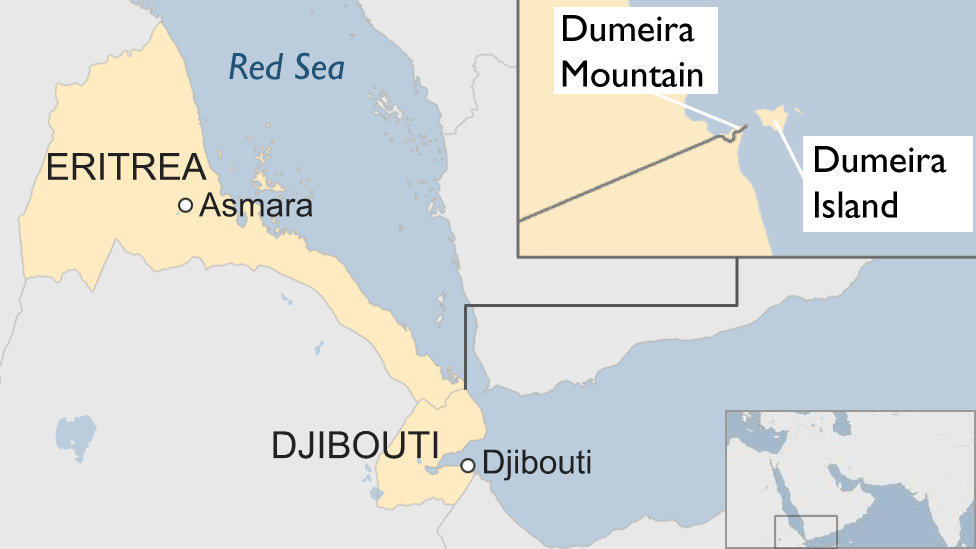
The withdrawal of the Qatari peacekeepers appears to be related to the country's current diplomatic dispute with some of its Gulf neighbours, which over recent weeks have imposed a blockade.
What happened and why?
On 16 June, Djibouti accused Eritrea of sending its troops into the disputed territory, following the withdrawal of the Qatari peacekeepers, a move that Doha had confirmed two days earlier, though without giving any reason.
Djibouti Foreign Minister Mahamoud Ali Youssouf accused Eritrea of occupying disputed territory on the border, and said his country wanted a peaceful solution but was ready for conflict if necessary.
Both Djibouti and Eritrea have sided with Saudi Arabia in its dispute with Qatar.
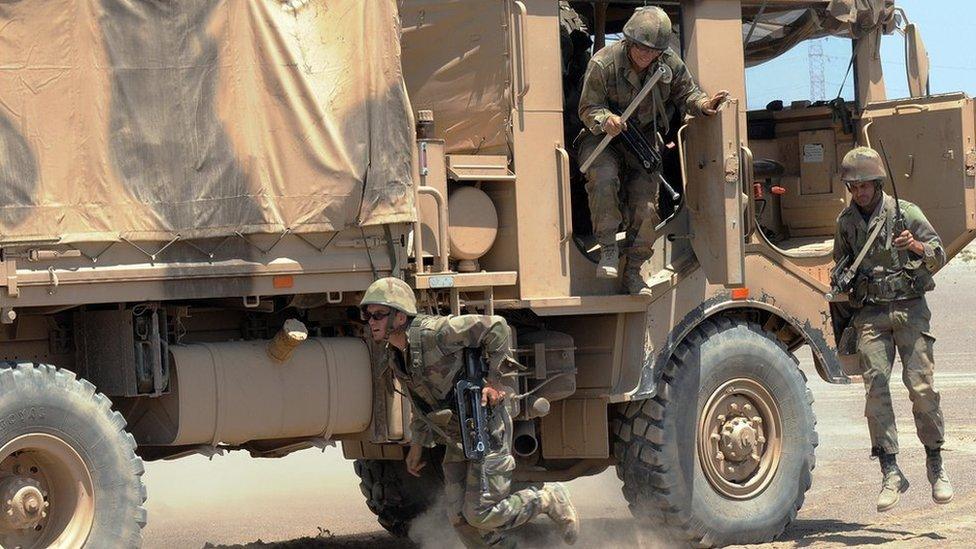
Djibouti is home to an increasing number of foreign military bases
What has been the reaction?
A statement issued by the Eritrean Information Ministry on 17 June made no direct mention of Djibouti's accusations of military activity.
"The government of Eritrea has so far refrained from issuing any statement, primarily because it is not privy to and has not, to date, obtained any information on the withdrawal from the party concerned: that is the State of Qatar," it said.
Ethiopia - by far the Horn of Africa's largest and most powerful country, which shares borders with both Eritrea and Djibouti - says it backs the African Union move to send a fact-finding mission, and has urged the UN to support the initiative.
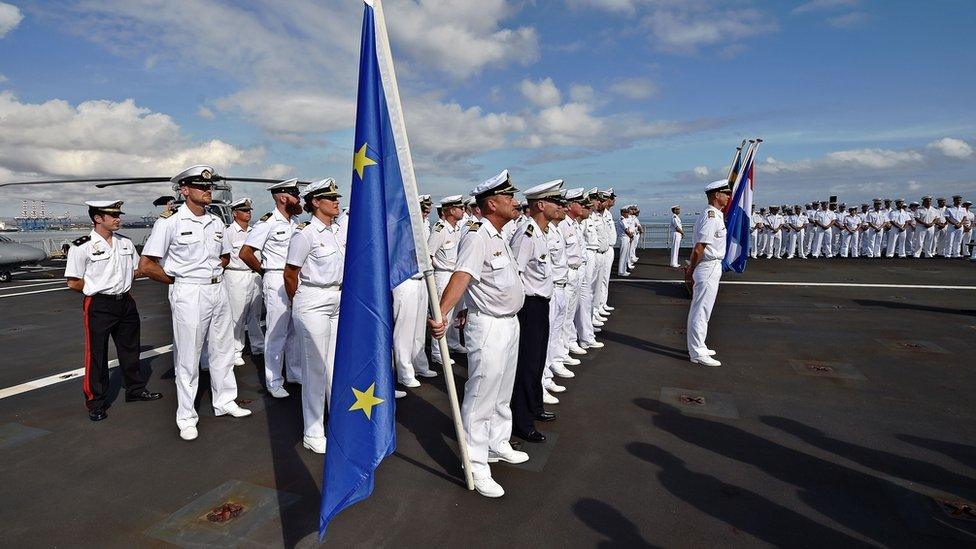
Naval forces of the European Union use Djibouti as a base to protect shipping against piracy off Somalia
The Ethiopian Foreign Ministry on 18 June called on its two neighbours to refrain from "escalating tensions" and instead "resolve differences through peaceful means".
What are the implications for regional security?
Aside from the adverse security and humanitarian effects on the two states themselves, any military conflict between Eritrea and Djibouti has the risk of inflaming the much more serious and longer running border row between Eritrea and Ethiopia.
Ethiopia, which fought a border war with Eritrea in 1998-2000, enjoys good relations with Djibouti. The two countries have a defence alliance.
BBC Monitoring reports and analyses news from TV, radio, web and print media around the world. You can follow BBC Monitoring on Twitter , externaland Facebook, external.
- Published5 June 2017
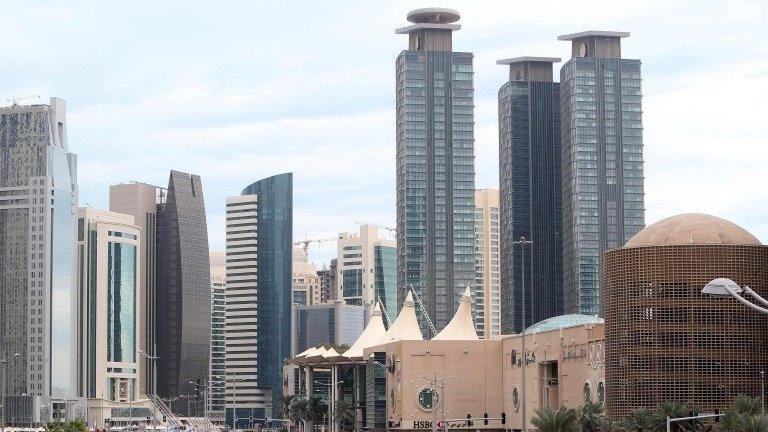
- Published18 April 2023
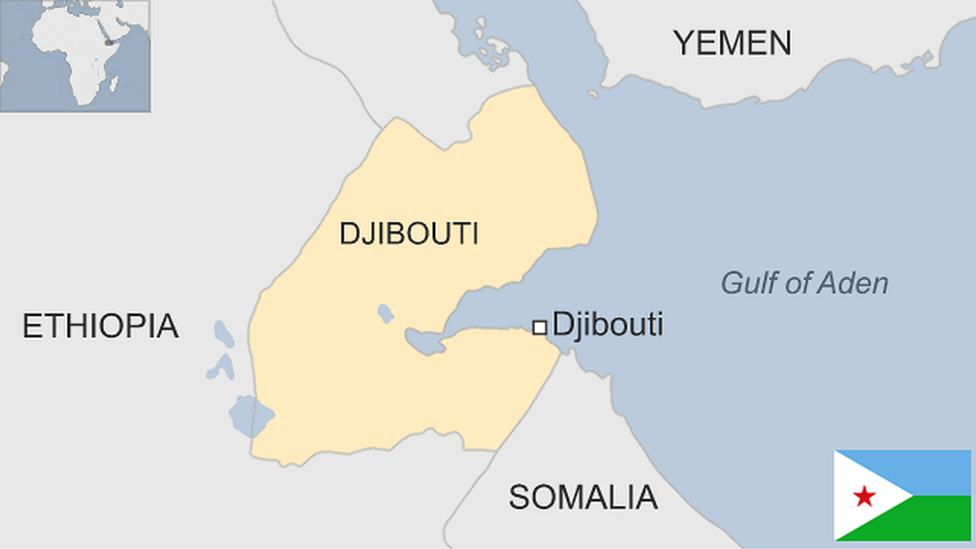
- Published18 April 2023
